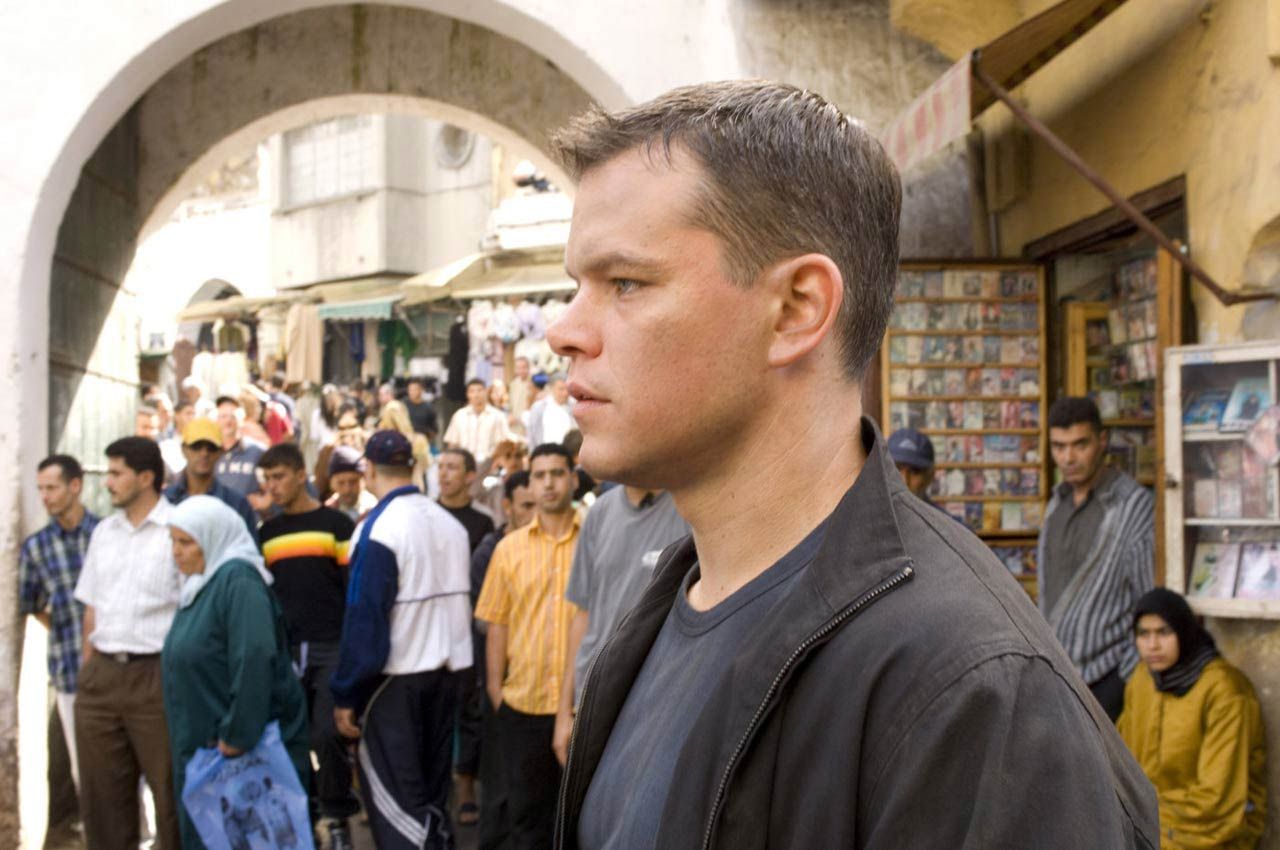Are you watching Brett Ratner and Gore Verbinski? Here's how you make a summer movie sequel: you keep the running time under two hours, you keep up an extraordinary pace, you recruit a fully credentialled cast, and - this perhaps most important of all - you kick serious ass. A couple of weeks ago, we were offered Rush Hour 3, a proposition roughly as appetising as hamburger meat retrieved from the bottom of a kebab shop's bins. The Bourne Ultimatum, by contrast, is filet mignon: the connoisseur's choice. As we join Matt Damon's rogue agent Jason Bourne in this third instalment of the series derived from Robert Ludlum's novels, he's on some sort of personal truth-and-reconciliation tour, attempting to make peace with the loved ones of those whose deaths he's caused, while still trying to work out why he's been responsible for all those corpses littering the European continent. A new lead in the quest to understand where he's coming from comes from courtesy of a Guardian journalist (Paddy Considine) who reckons he's got to the bottom of the matter; this sets off a gripping game of cat-and-mouse, as Bourne goes after those agents who first turned him into a killing machine, while the CIA, in turn, go after Bourne, turning all their cameras and most of their men upon him.
Paul Greengrass, who made United 93 in the hiatus between parts two and three, keeps the action real and immediate: with his editor Christopher Rouse (the film's true hero), he chops and shunts scenes with expert precision, evident from the opening runaround in Waterloo station to a staggering final-reel car chase, from which half the audience will come away with whiplash. Few directors in the contemporary cinema know how to work the possibilities of a cut - the way it allows filmmakers to defy the laws of time and space - better than Greengrass: there's something particularly exhilarating about the way the film can shift in an accelerated heartbeat from Bourne in an Internet cafe gathering info on a company based in Madrid to Madrid itself. (Ultimatum is nothing if not supremely tech-savvy: instead of establishing shots, Greengrass gives us the physical equivalent of Google Earth maps.) Time has been spent on getting the details right - I was delighted to see the Guardian's bylines were all rendered in the correct font; you'd be surprised how many films get that sort of thing wrong - but the film doesn't allow itself to get bogged down at any point; Greengrass and Rouse can even make tense and exciting the business of CIA wonks hacking into surveillance cameras and pulling up files. With its narrative emphasis on "rendition protocols", and every one of its angles covered by CCTV, Ultimatum seems as modern as an Antonioni movie would have done in the 1960s.
All of this is great, but we get real actors, too, as though Greengrass were aware he needed performers capable of registering at Ultimatum's remarkable speed. Damon again proves himself among the most versatile leads of his generation: boyish and open-faced in such light comedies as Stuck on You, he was notable as the closed-off intelligence geek in The Good Shepherd earlier this year, and here reinvents himself once more. You'd call his pumped-up Bourne meatheaded were it not for the fact that a) he speaks fluent Russian and Spanish, and b) he'd probably snap your arm for it. Around him, every scene throbs with class. Back at Agency headquarters, Joan Allen and David Strathairn perform an incredibly sophisticated double act; by way of a female sidekick - you sense this is a franchise too mature for love interests - Bourne picks up Julia Stiles, the thinking man's intelligence operative; and even relative pico-seconds of screentime are filled by the likes of Considine, Daniel Brühl (from Good Bye, Lenin!) and Albert Finney.
I'll concede I've been tough on previous instalments of this franchise, partly as a response to the toughness of the films themselves. 2004's The Bourne Supremacy, again directed by Greengrass, felt somewhat machine-tooled, allowing itself no time to mourn the loss of Franka Potente's character, the closest element the franchise had at that stage to a heart. To argue against myself for a moment: Potente's loss is more keenly felt here - right down to a strange psychodramatic scene where Stiles cuts and dyes her hair to look more like her guy's lost girl, and the spooky similarity is permitted to register - although there has always been a sense that Bourne simply doesn't have the time to mourn. That toughness comes to seem like an unquestionable virtue in Ultimatum, showing up the flabbiness that has developed elsewhere in the modern event movie. For the first time this summer, a motion picture lives up to its illustrious billing: Greengrass's film has not a single ounce of fat on any one of its frames, and it really does move like the clappers.
(September 2007)

No comments:
Post a Comment